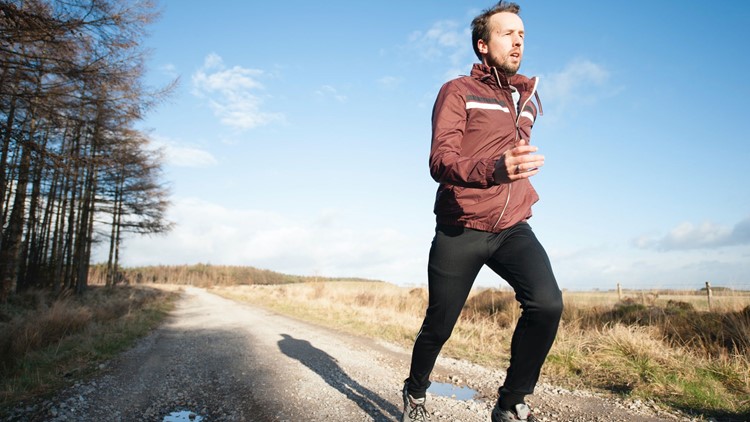(Sponsored Content from Baylor Scott & White Health)
Outdoor running has experienced a resurgence over the past several months. With gyms inaccessible during the COVID-19 pandemic, more and more people have started hitting their neighborhood sidewalks and trails. Even as gyms and fitness classes resume normal operations, running remains popular as a convenient, budget-friendly and safe option for exercise.
Running outdoors can have many positive impacts on your health, both physical and mental. Running 2-4 times per week has been shown to improve life expectancy. Research also points to the mental health boost that comes from spending time in nature.
However, as most runners well know, frequent running can also lead to injuries and uncomfortable side effects like stiffness, swelling and pain.
“The force that running places on your spine, hips, knees and ankles can cause stress on your articular joint surfaces,” said Khalid Yousuf, MD, orthopedic surgeon at Baylor Scott & White Medical Center – Plano. “This is why many people experience joint pain, especially in the knees, after running. In moderation, stress across the joints can actually be helpful, but it is hard to define ‘moderation’ for each individual. The right amount of stress on your joints might be different than the right amount of stress on my joints.”
If you are experiencing knee pain from running, these tips from orthopedic specialists at Baylor Scott & White Health can help you move better.
Stretch and strengthen
Pre-workout and post-workout stretching helps protect you from acute (sudden) injuries like stress fractures and tears, and chronic (ongoing or gradual) injuries like plantar fasciitis. To engage all the major muscle groups before a run, Dr. Yousuf recommends a combination of stretches and yoga poses.
If you are new to running, your legs may also benefit from strength training. Try this series of knee exercises that can help alleviate pain by strengthening your knees.
Choose your running shoes wisely
It’s important to select shoes that fit well and help protect your feet and joints from the impact of running. Keep in mind that the most expensive options aren’t always the best options for your foot structure.
“Make sure your running shoes are in good shape, fit your feet properly and provide adequate support for all areas of your feet,” Dr. Yousuf said.
Rest
When you are running regularly, it’s important to pay attention to your body and give it the rest it needs.
“Know when to rest and take a break,” Dr. Yousuf said. “Every person’s body is different, and it’s up to you to figure out the language of your body. Powering through when your body is telling you to rest can result in improper running form and possibly lead to injury.”
Consult an orthopedic specialist
It can be difficult to tell when knee pain is simply due to running more frequently or to an injury that requires medical attention. If you’re dealing with ongoing or painful knee problems — or any other running-related aches and pains — consult an orthopedic specialist for help.
(Sponsored Content from Baylor Scott & White Health)



